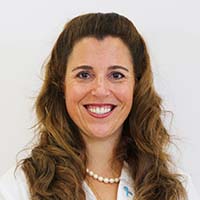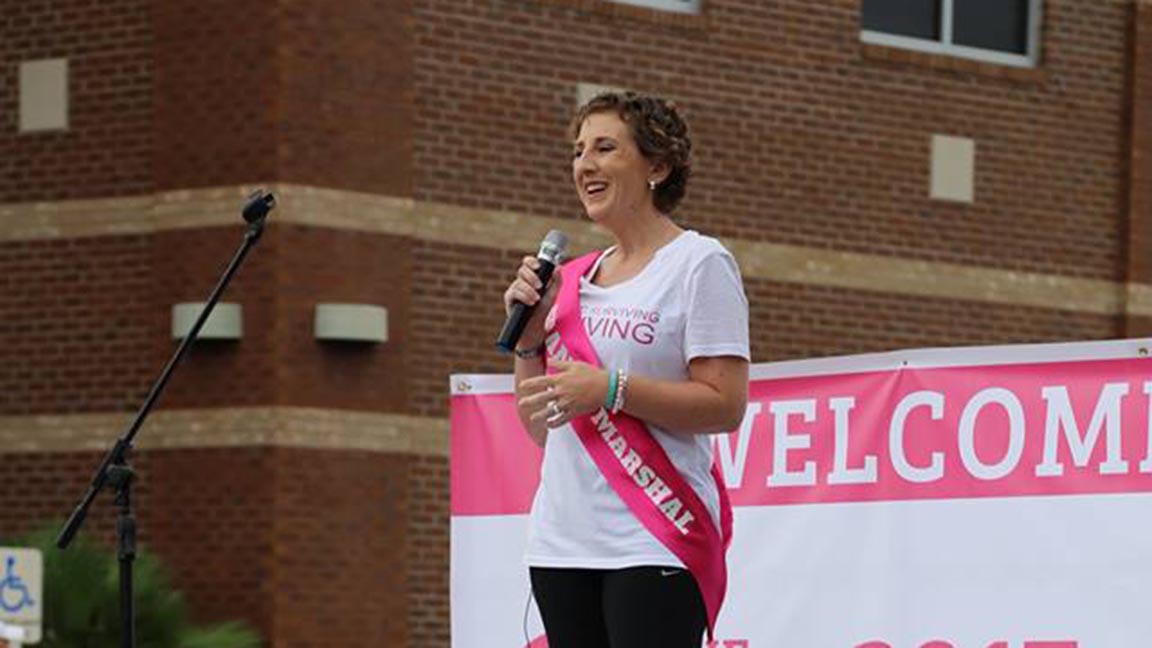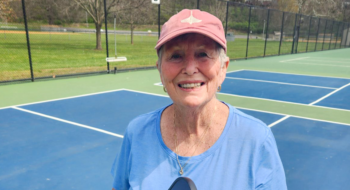Tracy Brown found a lump in her breast a few weeks before her 39th birthday. Her skin itched from a sunburn, and she discovered the suspicious mass as she was scratching.
The Myrtle Beach resident says she wasn’t surprised when her Tidelands Health physician ordered a mammogram followed by a biopsy. Once the biopsy results confirmed cancer, though, Brown began to learn that cancer treatment is different than how it’s often portrayed.
The biggest challenge during the period immediately following her diagnosis, she says, was waiting. Before being diagnosed herself, Brown assumed patients jumped immediately into treatment after cancer was discovered.
“It was hard for me to accept the waiting,” she said. “I wanted to start immediately with treatment.”
Comprehensive testing
She learned, however, that clinicians typically first test the cancer so they can recommend the best treatment options.
The testing provides vital information about the type of cancer and a patient’s prognosis, says Dr. Angela Mislowsky, the Tidelands Health breast surgeon who led Brown’s care.
For example, Dr. Mislowsky says, tests can determine if a breast cancer patient’s cancer cells have receptors for estrogen and progesterone. If they do, as in Brown’s case, that means those hormones may be fueling the cancer’s growth, so a patient may benefit from hormone-blocking therapy or another form of targeted treatment.
Genetic testing can guide the decision about whether a patient should undergo a mastectomy or a lumpectomy to remove the cancer. In Brown’s case, the testing didn’t reveal a genetic risk of breast cancer, so she opted for a lumpectomy.
A sentinel lymph node biopsy was also conducted to see if the cancer had spread to Brown’s lymph nodes. Technically, the test came back negative, but Brown says her physicians told her there were small numbers of cancer cells in her lymph nodes. Ultimately, Brown underwent five months of chemotherapy followed by six weeks of radiation.
Decisions
Brown was surprised by the number of decisions she made about treatment. When she received the diagnosis, she assumed physicians would dictate the process. However, she discovered that her physicians presented her with facts, statistics, success rates and potential side effects, allowing Brown to come to a decision about which treatments to undergo.
“It is very important to include the patient in the decision-making process and ensure she understands why we recommend certain treatments,” said Tidelands Health oncologist Dr. Catie Burbage, a member of the team that cared for Brown. “Tracy’s case is an excellent example the way we incorporate information from genetic testing, pathology reports and cancer stage to individually tailor the best treatment plan for each patient.”
After her diagnosis, Brown sought a second opinion at a cancer center in Texas. She learned that her clinical team at Tidelands Health was providing the care she needed.
“Going to Dallas confirmed that my physicians at Tidelands were brilliant,” Brown says. “All the treatment options available in Dallas, Tidelands also had available.”
Patients of the Tidelands Health Cancer Care Network, the region’s most comprehensive provider of cancer care, benefit from a multi-disciplinary team that meets regularly to discuss a patient’s treatment plan. Care is provided at locations in Murrells Inlet, the Tidelands Health Francis B. Ford Cancer Treatment Center in Georgetown and a location on 21st Avenue in Myrtle Beach.
Ultimately, Brown opted to have her ovaries removed following her cancer treatment so the hormones that fueled the growth of her breast cancer would no longer be present in her body.
Continued concern
Even though she’s free of cancer, Brown says the prospect of it returning still worries her.
One thing that helped Brown through her diagnosis and treatment was the advice and support of a friend who had been through a similar experience. She recommends other cancer patients seek out such support if they are able.
“She would tell me what to expect before each appointment,” Brown says. “That helped me tremendously – she knew what I was feeling, but it was a real, matter-of-fact conversation.”
A positive attitude is also very important in the care process, Dr. Mislowsky says.
“Tracy has really been an inspiration to me, the people I work with and other patients,” Dr. Mislowsky says. “So many patients have told me they met Tracy during chemotherapy, radiation or even regular doctors’ appointments and what an impact she has had on them. She is the epitome of the fact that a positive attitude can get you through a difficult situation and help you go very far.

Dr. Angela Mislowsky
Breast Surgeon, Tidelands Health Breast Center
Bio
Dr. Angela Mislowsky is a board-certified, fellowship-trained breast surgeon who practices at Tidelands Health Breast Center.
Learn MoreMedical Education
Education
New York Medical College
Residency
Union Memorial Hospital
Fellowship
The Hospital of The University of Pennsylvania, Breast and Oncology Surgery
Awards
- Board Certified, American Board of Surgery
Meet the Expert
Dr. Angela Mislowsky
Dr. Angela Mislowsky is a board-certified, fellowship-trained breast surgeon who practices at Tidelands Health Breast Center.





